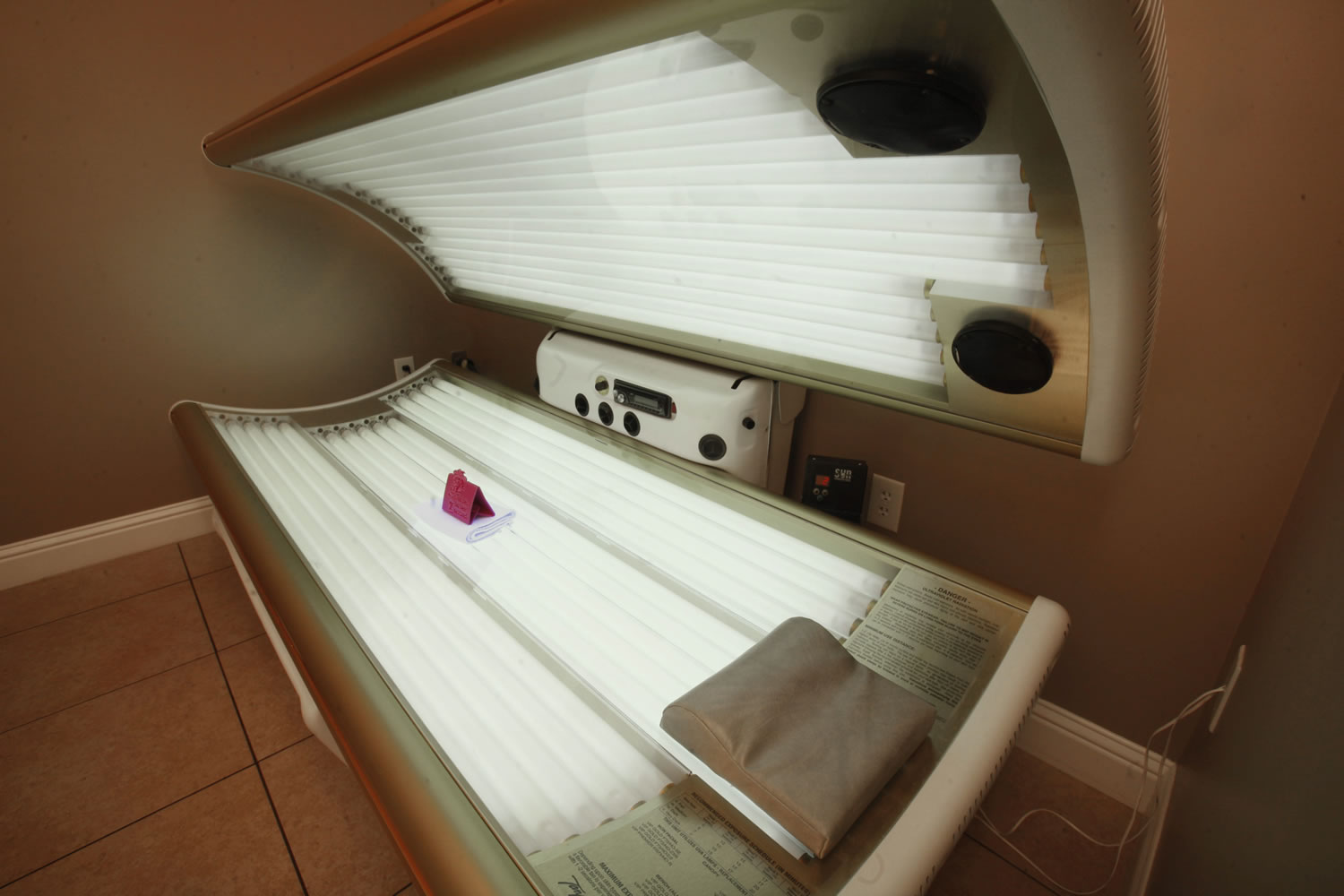For more stories, blogs and information on nutrition, fitness, health and advice on how to be healthier, visit columbian.com/livewell.
WASHINGTON — The nearly 3 in 10 white girls of high school age who use indoor tanning beds likely will soon come face-to-face with a new and stiffer warning aimed at young people eager to get that sun-kissed glow in a hurry: Don’t.
Faced with mounting evidence that indoor tanning greatly increases cancer risk among younger users, the Food and Drug Administration proposed last week to require tanning booths and beds to carry a warning encouraging young people not to use the devices.
Businesses that use devices and beds that use UV-A and UV-B rays to promote tanning currently are required to post signs warning consumers about health risks that come with their use. But the devices themselves are exempt from pre-market review.
Once finalized — a process that could be thwarted by congressional action — the FDA’s proposed new rule would require manufacturers to show that their products meet certain performance and safety standards and that they are prominently labeled with warnings against their use by people younger than 18. The warnings would also be required to encourage all frequent users to be screened regularly for skin cancer.
Compared to those who start later or do not go to tanning salons, people who begin tanning at ages younger than 35 have a 75 percent greater probability of developing melanoma, the deadliest type of skin cancer, and of developing cancers of the eye, not to mention wrinkles and premature aging of the skin.
Despite such evidence, in 2010, 32 percent of non-Latina white women between the ages of 18 and 21 (and the same proportion of girls who are seniors in high school) reported they artificially tanned using UV devices. And those who reported doing so said they averaged roughly 28 sessions a year.
The American Academy of Dermatology has said that the risk of developing skin cancer rises with each use of tanning beds. The National Cancer Institute estimates that 76,690 new cases of melanoma will be diagnosed each year. And because it is a particularly fast-growing cancer, some 9,480 will die of it yearly.
Currently, California and Vermont have laws banning tanning bed use by minors younger than 18, and 33 states have implemented lesser restrictions that include parental permission requirements for minors. Brazil has outlawed the use of tanning beds altogether, and the United Kingdom, Germany, Scotland, France and parts of Canada and Australia have made it illegal for people younger than 18 to use tanning beds.
“Using indoor tanning beds can damage your skin and increase your risk of developing skin cancer,” said FDA Commissioner Margaret A. Hamburg on Monday in announcing the agency’s proposed new regulation. “The FDA’s proposed changes will address some of the risks associated with sunlamp products and will provide consumers with clear and consistent information,” she added.
Whether the FDA’s warning will slow or stop these devices’ use is questionable: More than one-quarter of melanoma survivors said in a recent survey that they never wear sunscreen, about 15 percent said they rarely seek out shade to protect themselves and 2.1 percent said they had been to a tanning salon within the last year.



